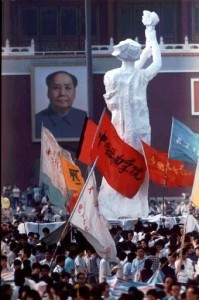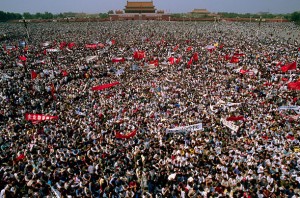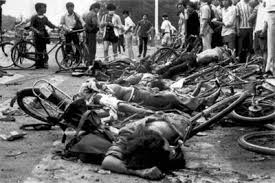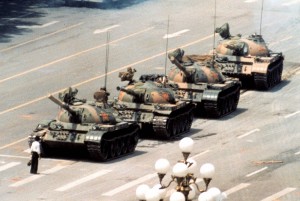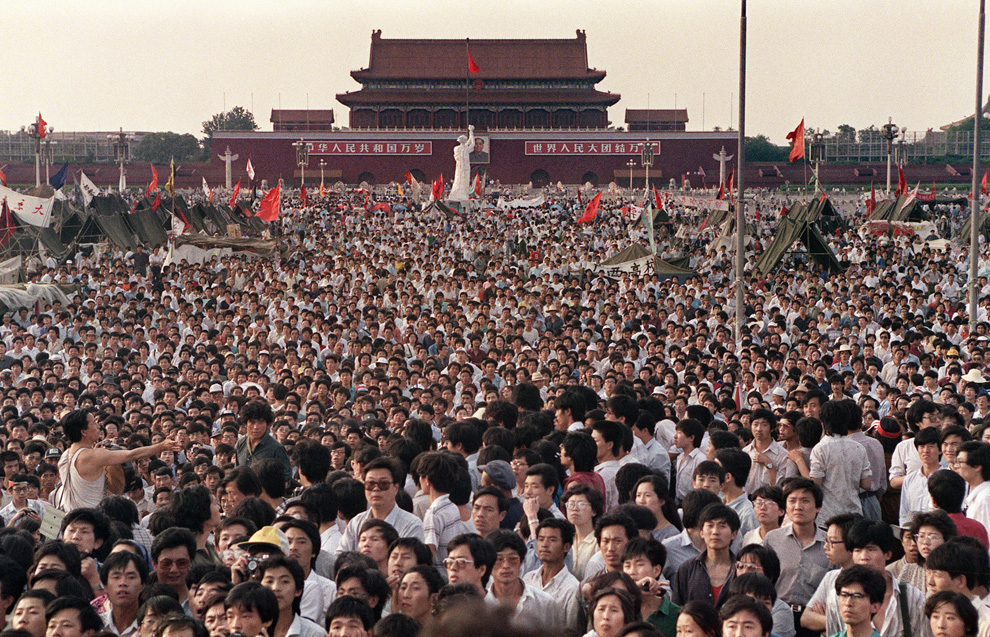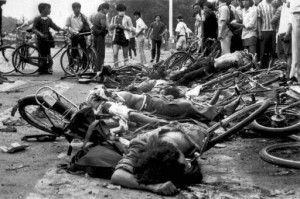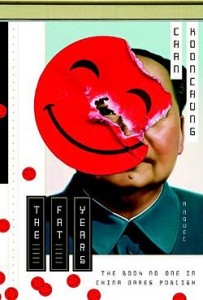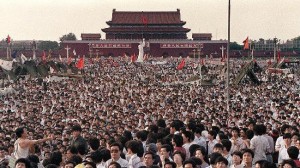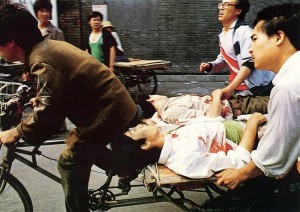The Despair Behind May 4: Are We Seeing It Again Today?
Dissent has never been protected in China. More often than not, it has been squashed. But yet it somehow persists throughout Chinese history. And this is a testament to the Chinese people themselves, willing to risk the repercussions to hold their government accountable. This Saturday marks the 100th anniversary of one of China’s most famous protests; one that altered the course of modern Chinese history; and one that should serve as a bellwether to China’s current leadership as it responds to academic dissent.

On May 4, 1919, over 4,000 university students and professors took to the streets of Beijing to protest their government’s acquiescence to the Treaty of Versailles. Even though the Chinese fought on the side of the Allies to defeat Germany during World War I, the Treaty of Versailles sought to return the German-occupied territory of China (Shandong Province) not to China but instead to Japan. When China’s intellectuals learned that their delegates had agreed to this, they took to the streets to hold their government – newly formed after the overthrow dynastic rule – to the promise that China would stand up for itself against the Western powers. While the May 4th protests did not change the final outcome of the Treaty of Versailles (Shandong ended up in Japanese hands), the protests were still hailed as a victory. Not only did the Chinese delegates change course and protest the continued occupation of its lands by foreign countries, but the protests cemented the students calls for a new, modern society.

Today, the May 4th Movement is portrayed as a glorious triumph. But at its inception, the Movement felt like anything but. Instead, the students and intellectuals were feeling very much disaffected, seeing themselves as voiceless victims of their government and of their own traditional culture, a culture they believed was the cause of China’s downfall vis-à-vis the West. The stories of Lu Xun, one of the May 4th Movement’s most famous writers and who epitomized the Movement, are not ones of hope, but rather stories of despair, with China continuing its rapid decline so long as it holds on to traditional cultural values.
And while the May 4th Movement did eventually result in China standing up for itself, it is important to be aware of the mindset of the times that lead to a such a large protest. Seventy years later, as Andrea Worden poignantly points out in, Despair and Hope: A Changsha Chronicle, her eyewitness account of the events of Spring 1989, students would feel the same sense of despair. And again, the students and intellectuals would rise up and call on their government to abide by its promises of reform and of a better life. But, unlike May 4th, the 1989 protests would be put down in the most violent of ways, resulting in a massacre in the streets around Tiananmen Square in Beijing, and squashing any hopes of reform.

Today, the same feelings of despair and hopelessness have emerged. And from those feelings, academics are calling on the Chinese government to abide by its promises to the people. The most notable example is Xu Zhangrun, a constitutional law professor at the prestigious Tsinghua University. Last year, Xu published an essay, Imminent Fears, Imminent Hopes (translated by Geremie Barme) calling out President Xi Jinping’s broken promises. Among other issues, Xu criticizes Xi for abolishing term limits, enabling him to establish himself as a dictator like Mao. He also calls on Xi to end the corruption that has given Party Members a privileged position in society. Not surprisingly, the essay was immediately censored. However, Xu did not receive any other reprisals until recently when Tsinghua University banned him from the classroom, removed him from his academic duties and placed him under investigation. A few weeks later, the border agents refused to permit Xu to leave the country to attend a conference in Japan, a conference Tsinghua had previously approved.
But Xu is not the first intellectual in the current environment to face repercussions because of his speech and he will not the be the last. Almost five years ago, Ilham Tohti, an economics professor was given a life sentence because his website, a website that attempted to bridge the gap between Uighurs and Han Chinese in an effort to quell the dissatisfaction growing in Xinjiang, was seen as an attempt at separatism. For sure Tohti’s punishment remains the most extreme, but, as a recent ChinaFile discussion demonstrates, other academics who have spoken out in an attempt to hold the government to its promises have also run into various degrees of trouble with their universities.

Expect the Chinese government to continue to try to suppress the academics. And in the short-term, the government, with its total control and ability to immediately censor, will win. But at what cost? These academics do represent a segment of society that is dissatisfied. Is it better to keep that dissatisfaction suppressed? True that today, any planned march on Tiananmen Square will be stopped before it even begins, but there are other protests that Chinese academics can perform. One of which is protesting with their feet and leaving the country. Is it really in the best interest of the Chinese government – and future Chinese students – to have some of the best and brightest professors defect? In the May 4th Movement, that opportunity was also there – many of the students and professors had opportunities to go abroad. But they didn’t or they came back. They stayed in China because back then, the stakes weren’t so high if the May 4th Movement was suppressed. And for the benefit of China, thank goodness they did. Hopefully, on this 100th Anniversary of the May 4th Movement, the current Chinese government can truly see the importance of allowing dissent. If it can’t, then at least Xu Zhangrun will see the irony of it all.
 On Facebook
On Facebook By Email
By Email 
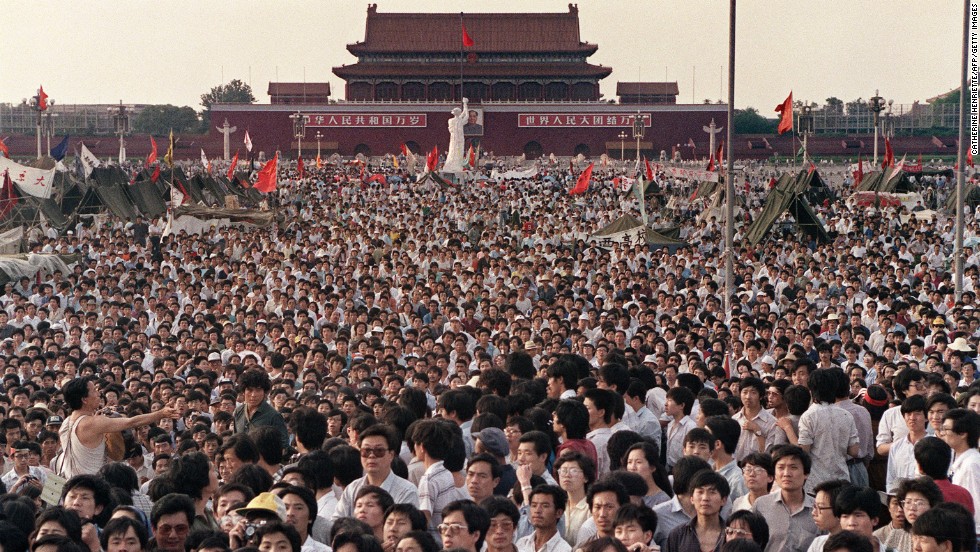

 But every year, there are still those in China willing to risk their freedom to commemorate the violent crackdown on Tiananmen Square. A few years ago it was Chinese netizens reposting the image of the Tank Man – the Chinese citizen stopping a line of tanks, a banned picture on the Chinese internet – standing in front of a line of large,
But every year, there are still those in China willing to risk their freedom to commemorate the violent crackdown on Tiananmen Square. A few years ago it was Chinese netizens reposting the image of the Tank Man – the Chinese citizen stopping a line of tanks, a banned picture on the Chinese internet – standing in front of a line of large, 